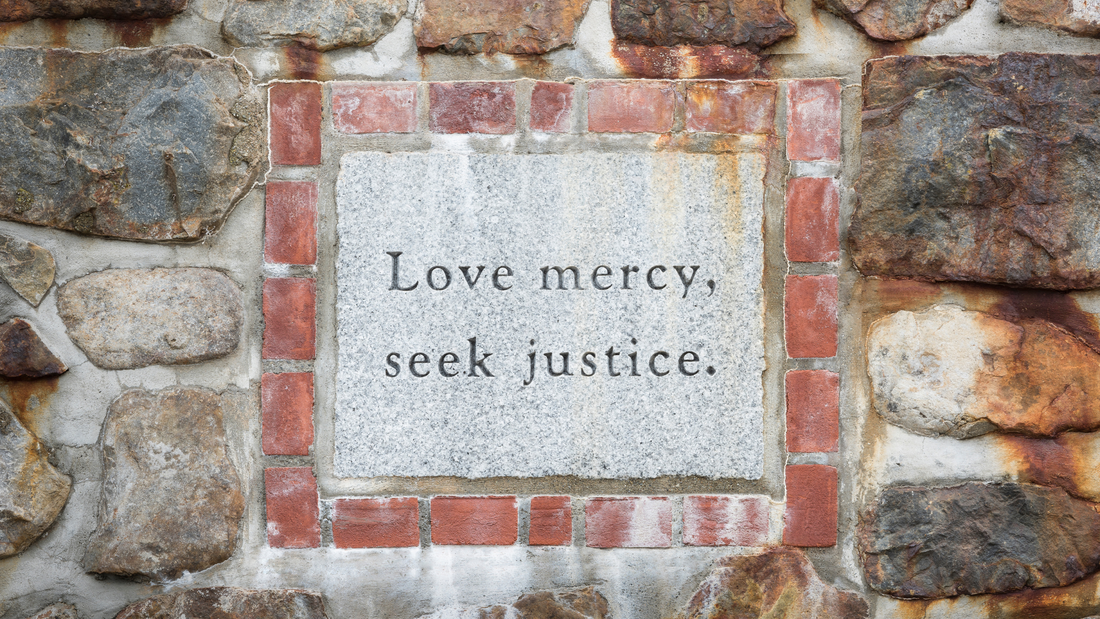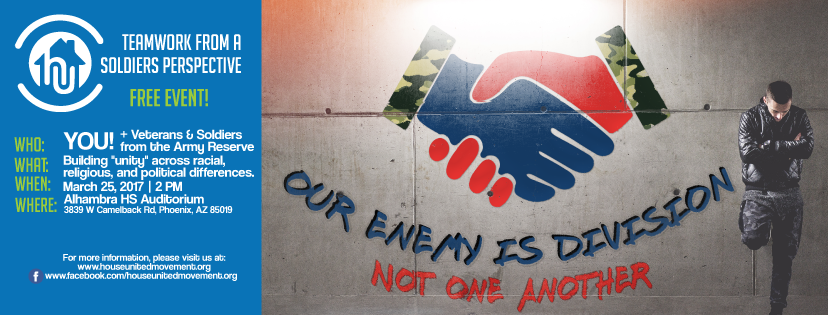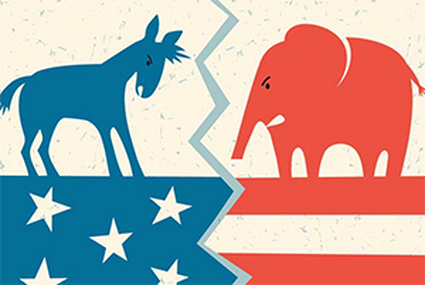The wrath of God is being revealed from |
"May we not succumb to thoughts
of violence and revenge today, but rather
to thoughts of mercy and compassion.
We are to love our enemies that they
might be returned to their right minds."
Marianne Williamson
In a time of political retaliation and venomous and callous social media attacks, mercy and compassion land like a cooling rain. But that's not what caught my eye. There are a lot of mercy quotes that do that. What bowled me over were the last two lines "We are to love our enemies [note: that's a Jesus thing] SO THAT THEY MIGHT BE RETURNED TO THEIR RIGHT MINDS." In a land in which debate has become winner-take-all war, in which the Twitter takedown has become normative, in which discourse is either weaponized against the other tribe or intended to lather up our own, here was a proper purpose for tolerance and attentive listening.
These words reminded me of one of my favorite articles, written by Notre Dame President John Jenkins almost exactly ten years ago: "Persuasion Is the Cure to Incivility." I spend my life helping people develop incentives for humanizing and hearing "them" -- the other side, the other tribe. This quotation gave a reason for doing just that. If we reject or retaliate to opposition, we will feed the beast of our political enemies and likely radicalize them. Listen to them, on the other hand -- love them, reply respectfully to them, and we will give them a shot at rethinking their position. All of us should have such enemies in our lives to keep us in our own right minds.
At this point, I know what you're asking. "What's the problem, Allen?!" you ask. "You like the words and you gave us the words. Move on." But you don't know the hurricane that broke out in my mind. Marianne Williamson, the author of the quote, is the woman who made a short run at the Democratic nomination for president in 2020. I have always branded her a sort of spirituality-lite peddler, whose (to me) mushy and new-age-ish sort of counsel can be, for some, a poor substitute for the whole Jesus. Suffice it to say that her religious teaching is not nearly my cup of tea.
Add to all this Ms. Williamson's far-left proclivities, seen by a guy (me) who's hoping to help build a radical center, a common ground where Americans can meet constructively for conversation, and you start to get a sense of how the attribution of this quote challenged me. She stands for a part of American discourse that I don't usually like or find at all helpful. I almost opted not to use the quote at all. "What will my conservatives think?!" But I didn't want you to miss it, so, I wondered if I should include it anonymously -- an absolutely ludicrous and not-so-ethical idea.
I was in turmoil. I was humbled. And that's when I came to MY right mind and decided to practice what I preach. So there it appeared: the full quote with the author's name boldly printed beneath.
Friends, I hope you learned from Marianne Williamson's words as you read them yesterday. As I typed them, quotation and author, I myself learned that I'm not nearly home in this pursuit of mercy and humility. I learned that, as often as I tell people to "listen for what the Spirit is saying" I have a long ways to go in opening myself fully to God's voice, whatever its source. I already agreed with the words Ms. Williamson wrote. So the turmoil taught me much more than hearing the quotation again.
My brothers and sisters in Christ, as we begin a New Year, I hope you will learn from my foibles and failings. Humility is elusive. And it's what we all need right now.
These words reminded me of one of my favorite articles, written by Notre Dame President John Jenkins almost exactly ten years ago: "Persuasion Is the Cure to Incivility." I spend my life helping people develop incentives for humanizing and hearing "them" -- the other side, the other tribe. This quotation gave a reason for doing just that. If we reject or retaliate to opposition, we will feed the beast of our political enemies and likely radicalize them. Listen to them, on the other hand -- love them, reply respectfully to them, and we will give them a shot at rethinking their position. All of us should have such enemies in our lives to keep us in our own right minds.
At this point, I know what you're asking. "What's the problem, Allen?!" you ask. "You like the words and you gave us the words. Move on." But you don't know the hurricane that broke out in my mind. Marianne Williamson, the author of the quote, is the woman who made a short run at the Democratic nomination for president in 2020. I have always branded her a sort of spirituality-lite peddler, whose (to me) mushy and new-age-ish sort of counsel can be, for some, a poor substitute for the whole Jesus. Suffice it to say that her religious teaching is not nearly my cup of tea.
Add to all this Ms. Williamson's far-left proclivities, seen by a guy (me) who's hoping to help build a radical center, a common ground where Americans can meet constructively for conversation, and you start to get a sense of how the attribution of this quote challenged me. She stands for a part of American discourse that I don't usually like or find at all helpful. I almost opted not to use the quote at all. "What will my conservatives think?!" But I didn't want you to miss it, so, I wondered if I should include it anonymously -- an absolutely ludicrous and not-so-ethical idea.
I was in turmoil. I was humbled. And that's when I came to MY right mind and decided to practice what I preach. So there it appeared: the full quote with the author's name boldly printed beneath.
Friends, I hope you learned from Marianne Williamson's words as you read them yesterday. As I typed them, quotation and author, I myself learned that I'm not nearly home in this pursuit of mercy and humility. I learned that, as often as I tell people to "listen for what the Spirit is saying" I have a long ways to go in opening myself fully to God's voice, whatever its source. I already agreed with the words Ms. Williamson wrote. So the turmoil taught me much more than hearing the quotation again.
My brothers and sisters in Christ, as we begin a New Year, I hope you will learn from my foibles and failings. Humility is elusive. And it's what we all need right now.
Prayer -- God, you see through us. Help us to see through us, too, in Jesus. Amen.
�
|
Vertical Divider
Most of us who make resolutions actually start them on Jan 2, after the family fun, football games, amore food, and other festivities have run their course. For non-resolvers (a growing group), a year's inception often carries with it a certain fresh hopefulness, a new beginning. And even for those of us who feel beleaguered and want no part in ambitious proclamations of life change -- even for them today's topic will likely appeal.
Mercy is a divine property (1928 Anglican Book of Prayer) and a divine requirement (Micah 6.8). It reverses the cycle of violence, and in our world of payback, retaliation, and brusque coldness, mercy can be a north star for our walk together through 2023. To offer mercy into this day, I give you a handful of my favorite words spoken on it. Each is worth your time, and given time and repetition, reading or hearing them can even begin to draw our hearts to mercy's Source. And so these words of others will constitute our devotional moment for this day,. Give yourself time to read each slowly, a couple times, and contemplate how they define mercy and so begin to install it as a property of our souls. Enjoy! He hath shewed thee, O man, what is good;
and what doth the Lord require of thee, but to do justly, and to love mercy, and to walk humbly with thy God? Micah 6.8 "The quality of mercy is not strained. It droppeth as the gentle rain from heaven Upon the place beneath. It is twice blessed: It blesseth him that gives and him that takes." Wm Shakespeare The Merchant of Venice |
"God tolerates even our stammering,
and pardons our ignorance whenever something inadvertently escapes us - as, indeed, without this mercy there would be no freedom to pray." John Calvin "Yeah, we all could use a little mercy now I know we don't deserve it but we need it anyhow We hang in the balance dangle 'tween hell and hallowed ground And every single one of us could use some mercy now Every single one of us could use some mercy now Every single one of us could use some mercy now." Mary Gauthier, "Mercy Now" "We do not presume to come to this thy Table, O merciful Lord, trusting in our own righteousness, but in thy manifold and great mercies. We are not worthy so much as to gather up the crumbs under thy Table. But thou art the same Lord, whose property is always to have mercy: Grant us therefore, gracious Lord, so to eat the flesh of thy dear Son Jesus Christ, and to drink his blood, that our sinful bodies may be made clean by his Body, and our souls washed through his most precious Blood, and that we may evermore dwell in him, and he in us. Amen." 1928 Anglican Book of Prayer "Teach me to feel another's woe, to hide the fault I see, that mercy I to others show, that mercy show to me." Alexander Pope "May we not succumb to thoughts of violence and revenge today, but rather to thoughts of mercy and compassion. We are to love our enemies that they might be returned to their right minds." Marianne Williamson |
Prayer -- “Answer me when I call to you, my righteous God. Give me relief from my distress; have mercy on me and hear my prayer," in Jesus. Amen. (From Psalm 4)
|
Hear a sermon done by House United's Allen Hilton at First Plymouth Congregational Church, Lincoln, NE ALLEN'S SERMON LINK |
| by Allen Hilton Justin Cober-Lake recently took a look at Allen Hilton’s A House United: How the Church Can Save the World on the Englewood Review site. Take a look at his look HERE. |
|
by Allen Hilton
“In an ideal world, the congregation becomes adept at [Courageous Conversations], and they become the host for conversations in their community. The dream here is that people start saying, ‘I don’t know what else they do in that church, but they seem to be really good at talking to one another about hard things. We can’t get anything done in the city government, so we’re going to go ask the church to come help us…'” Allen Hilton in Sally Hicks of the Faith and Leadership project interview with him about House United. Find the interview HERE. |
|
by Allen Hilton
Greetings Friends. In a recent interview on CNN’s “Reliable Sources”, Glenn Beck described important pieces of our national problem: we’re two separate Americas, we have an oppositional media culture, and “we think the other side doesn’t have anything to teach me, so I’m not even going to listen to them.” The former FOX News Firestarter even quoted MLK to advocate reconciliation. You know that I shouted my loud “AMEN!” to all of this. No AMEN arose from my soul, though, when Mr. Beck named our polarization’s cause and cure. The problem, says he, is our competitive nature. “Both left and right are trying to win,” and so we “stop listening to each other,” then all kinds of other bad things happen. His solution? We just need to tell our politicians to stop being competitive. |
| by Allen Hilton The “50 States of Joy” preaching campaign that HU co-launched with the Yale Center for Faith and Culture got some press in the “Yalie Daily.” Check it out! “In a nation that does not have a whole lot of common ground right now, joy is a... |
| by Allen Hilton The “50 States of Joy” preaching campaign that HU co-launched with the Yale Center for Faith and Culture got some press in the “Yalie Daily.” Check it out! “In a nation that does not have a whole lot of common ground right now, joy is a common-ground kind of issue,” Hilton said. “It’s a part of what we all hope for, so it makes a good subject on which people who disagree elsewhere can agree, and that’s why we think this can be very powerful.” |
| by Allen Hilton The Yale Center for Faith and Culture and House United have teamed up to launch the “50 States of Joy” preaching campaign. This April through August, preachers from around the nation and the world will proclaim joy from their wide variety of perspectives to their wide variety of congregations. Joy explodes off the pages of the Apostle Paul’s Letter to the Philippians, in spite of the circumstances that face the author (imprisoned by the Roman magistrates) and audience (“suffering” and “struggling” in the face of “opposition” from their non-Christian neighbors). Allen Hilton has prepared a Bible Study to support the “50 States of Joy” campaign, called “Joy – A Study of Paul’s Philippians.” It guides the learner, the small-group leader, or the class teacher through the letter in six sessions, tracking the central theme of joy. Enjoy! 50 States of Joy: A Preaching Series Download pdf: HU – Joy Bible Study – 50 States and YCFC |
| It’s time to listen to our soldiers. A nation whose differences stymy us and keep us from collaborating needs to hear from people who do it for a living in the most pressurized circumstances imaginable. On March 25 at 2 PM at the Alhambra High School Auditorium (3839 W Camelback Rd, Phoenix, AZ 85019), members of an Arizona-based Army Reserve unit will tell us how they built a team and got things done across and through racial, religious, and political differences. by Allen Hilton |
| by Brian Doeden House United and Yale Center for Faith and Culture have invited preachers around the nation and the world to join this post-Easter explosion of joy. |
| by Brian Doeden It’s the morning after in America. The African-American desk clerk checks me out of my room, so I hand my bag to the hotel’s Arab shuttle driver. The 20-something with piercings and tats looks most tired of all. I navigate security beside a white man in his trucker’s hat and a Latino family trying to collapse a stroller. I buy water from a hijab-clad Indonesian woman. Behind me on the jet way, an urbane forty- something ponders Mexican real estate aloud, while a middle-aged Wall Street Journal reader looks on amused. My Row 25 runs the gamut – a retired woman looking scared, a young professional man reading “How to Win Friends and Influence People.” A union man’s jacket celebrates “5,000 Days FRA Injury Free.” The woman two rows back has young daughters. |
| The biblical prophet Isaiah has a splendid little line that makes it into an old spiritual, “I ain’t a gonna study war no more.” Isaiah famously says, “[Many peoples] will beat their swords into plowshares and their spears into pruning hooks. Nation will not take up sword against nation, nor will they train for war anymore.” (Isaiah 2.4) In American culture, we’ve trained for our culture wars for so long that the ways of that war are instinctive to us — emphasizing our differences rather than our commonalities, oversimplifying the nation into two sides rather than a wide multiplicity, waxing certain about things that are far from sure, dismissing someone and stomping away from conversation after seven words if we disagree with what we hear, and characterizing our opponents by their most extreme voices. It’s time to stop training for war. In this piece Ron Blankenhorn helps us train for unity instead. Do you have the 7 Habits of Highly Depolarizing People? READ ARTICLE by Brian Doeden |
| by Allen Hilton The central virtue of House United is an endangered one: Humility. This blog piece cultivates it. Read and react. The conversation continues… READ THE ARTICLE HERE |
| by Allen Hilton For over four decades, evangelical voters have played a very public role in election coverage. Progressive analysts, both from the secular media and from inside church circles, often treat this category of Christians as a monolith, as in, “Evangelical Voters Support…” This year that custom has continued. How many times have you heard pundits describe how “the evangelical vote” constitutes a significant part of Donald Trump’s support base? One part of House United’s role in our culture is to break down stereotypes that divide us unnecessarily. During this election season, progressive commentators have consistently characterized evangelicals as uncomfortable with supporting Trump because of character issues, but ultimately willing to do so in order to secure conservative Supreme Court appointments. Generalizations like this cloud the issue. Progressives would do well to listen to actual living, breathing evangelicals — and not just the fundamentalists who are thrown on to Facebook pages and Twitter feeds to inflame. |
| by Allen Hilton Kelly Brill identifies the deep chasms between us and then challenges her congregation to live into the New Testament mandate to come together amid our differences. Select the 11 AM service on Oct 2, 2016 and drop in at 37:00 to hear this important call to Christian civility and unity. Also listen for the applause at the end. People are crying out for Christian unity! CALL TO BE ONE LINK |
| Rich Nathan of Vineyard Columbus Church preaches, “Can Democrats and Republicans Live Together in Peace?” READ MORE by Brian Doeden |
Author
Rev. Dr. Allen R. Hilton:
Allen moves all of his energy toward “bringing people together across difference for the common good.”















